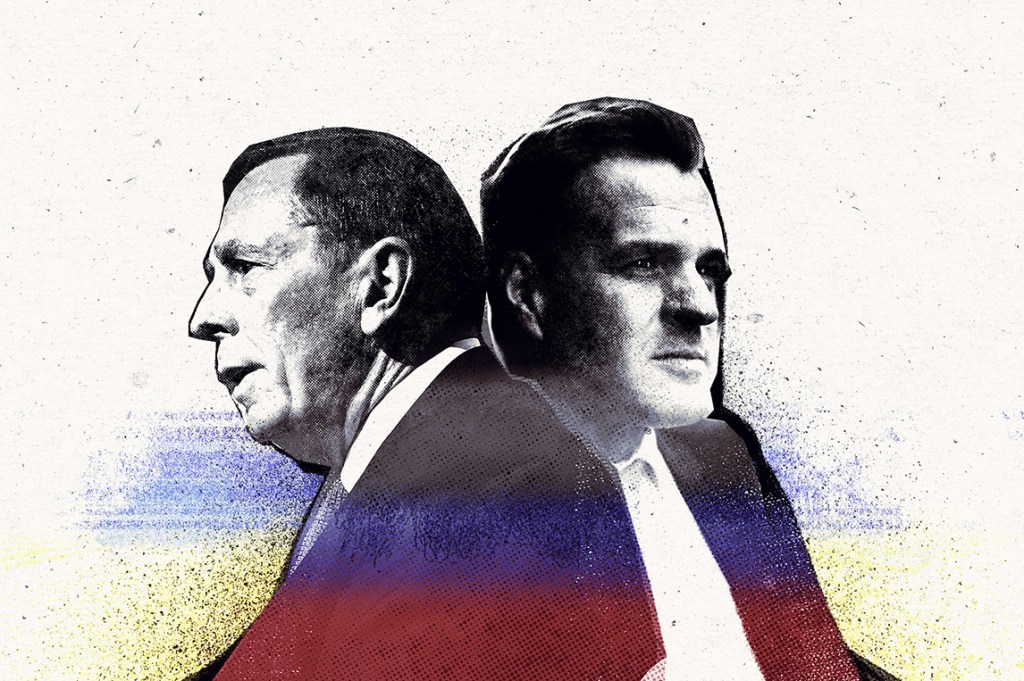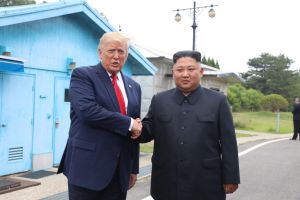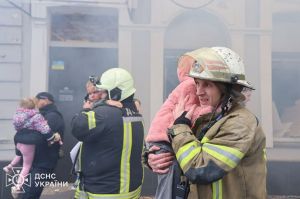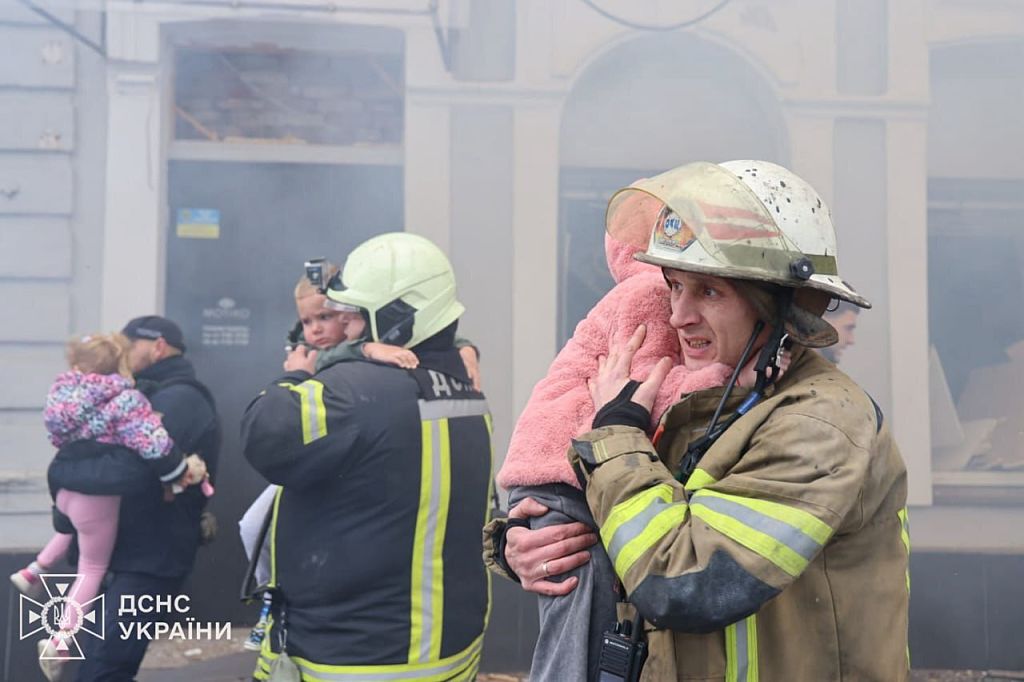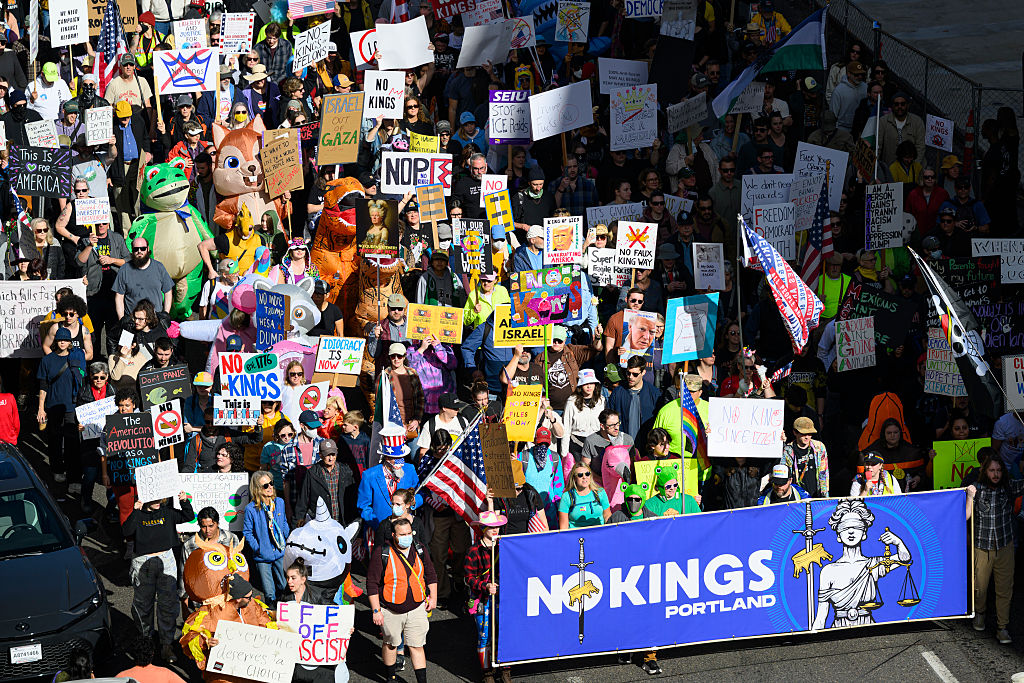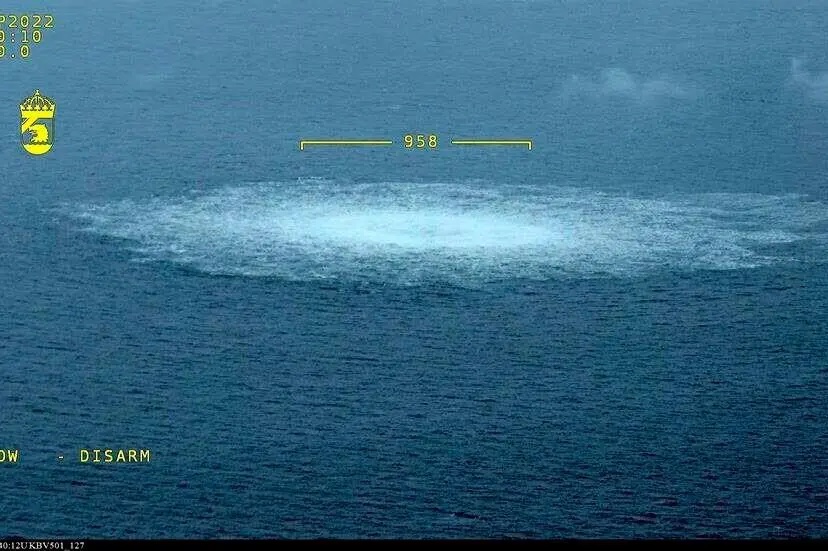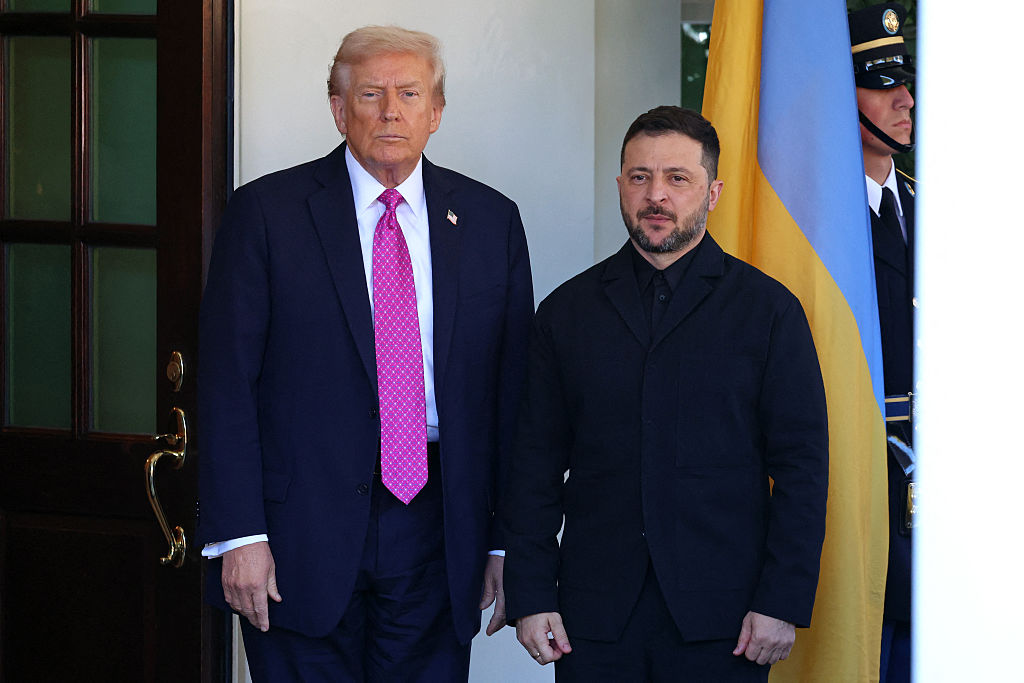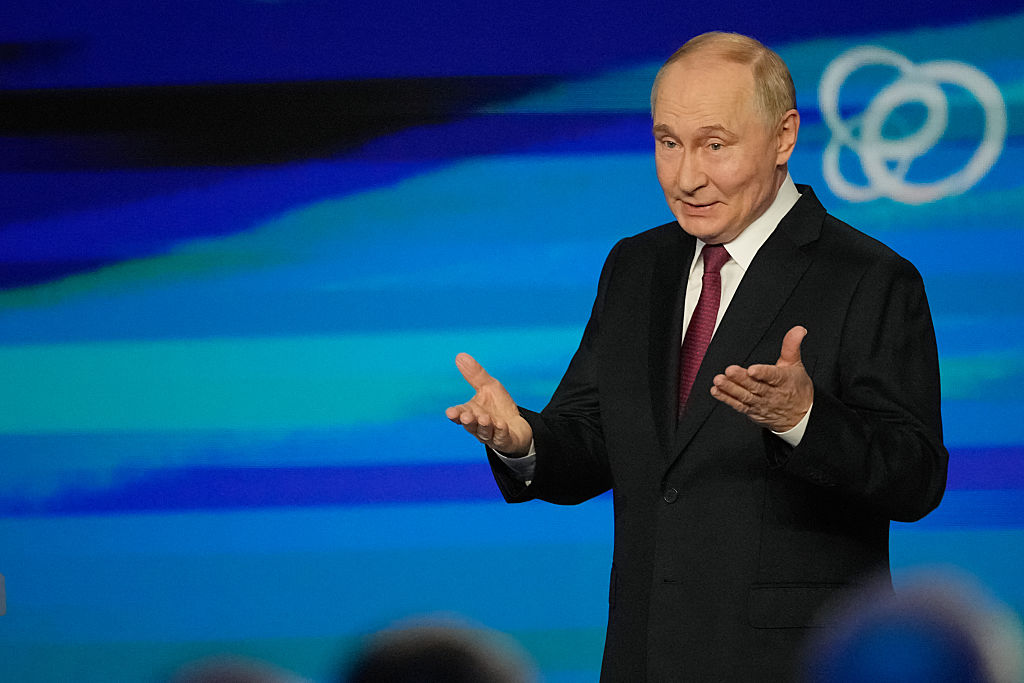David Petraeus is a former CIA director who, as a four-star general, led US military campaigns in Iraq and Afghanistan. He speaks to the historian Niall Ferguson about the war in Ukraine.
Niall Ferguson: General, I wanted to ask you to give your assessments of the Russian invasion of Ukraine. If you were grading Russia’s military performance and Ukraine’s, what grades would you give?
David Petraeus: Clearly Russia has failed. That’s the only way to describe the campaign thus far. And the Ukrainians, gosh, I think you have to give them an A at least and perhaps even more for just the sheer determination.
But it’s much more than fighting for their very survival. They have done it very, very impressively. The entire nation has been galvanized by a leader who has been positively Churchillian. There are four tasks of strategic leadership, and President Zelensky has performed each of these brilliantly. First, he has got the overarching big ideas right. Second, he has communicated the big ideas effectively throughout Ukraine and around the world. Third, he has overseen the implementation of the big ideas relentlessly. And, fourth, he has determined how he needs to refine the big ideas again and again. I think you give an A-plus since we’re using Harvard and Stanford grades.
Even on that scale, you can’t give Russia anything but a failing grade. Russia has realized that by attacking everything they attack nothing, and therefore have achieved very little so far. They appear to have withdrawn just about everything that they had in the north and northeast. The Russian command, control and communications have failed, too. That’s why generals have to go up to the front, where they get killed by these very skillful Ukrainian snipers. I’d give an “incomplete” grade on what Russia is seeking to accomplish now: shifting focus to the south-east, trying to reinforce the one area in which they’ve had a modest degree of success. Then they’ll attack to the southwest and perhaps even try to trap some of the Ukrainian forces that are defending against the Russians coming out of the Donbas. And then they’ll try to do the same thing from the southeast around Mariupol, where there still is an unbelievably determined group of defenders. Mariupol has become the Ukrainian Alamo: just fighting to the last defender. But when eventually it does fall, the Russians will be able to refocus.
It’s a race right now between the Russians trying to reconstitute their forces — Russia has lost well over 15,000 soldiers in the first six weeks, four times what we lost in twenty years in Iraq — and the Ukrainians, who have to do the same for many of their forces that have fought in the north, and then push them a minimum of 450 miles from Kyiv to the southeast. That’s a long distance. Having invaded a country where we went these kinds of distances, I can tell you it’s very challenging.
NF: Given all that you’ve just said, what’s the probability that Russia can succeed in winning the coming battle for the Donbas? What seems to be happening is a very hurried reconfiguration of Russian forces, which — considering the losses they’ve suffered — strikes me as too hurried. I can’t help feeling this next Russian plan, which we might call Plan C, isn’t going to work, or at least that there’s a decent chance it could fail. Do they really stand a chance of winning some kind of victory in the east of Ukraine, given all the casualties and losses of equipment that they’ve suffered?
DP: I think the odds, as you imply, are against the Russians achieving control of all the southeast. But the odds are not sufficiently against that possibility that you don’t have to be seriously concerned. This is a perilous moment for Ukraine, because shifting all these forces down there is not a trivial task. They’re going to require every means of transportation. They don’t have enormous expeditionary logistics; rather they use fixed-base logistics. This would be challenging for any army. This is why it’s a race.
What the Russians seem to be doing “well” is destroying what is in their path. They can just keep pushing that way, and take the remainder of Donetsk and Luhansk, solidify their gains along the southeast coast, and enable Putin to say: “This is what we always wanted to achieve.” But like you, I think the Ukrainians have a reasonable chance of not just defending against this new offensive, but they could also counterattack as they did outside Kyiv, Chernihiv and Sumy. By the way, I also think if you look at the embattled city of Kherson, which was the first major city taken by the Russians, they’ve never really solidified their grip. They do control it, but the citizens are out demonstrating every day. If the Ukrainians can take that city back that would be a huge statement.
The art of warfare
NF: Let me take a step back now and ask a question about the character of the war. Would you say that a twentieth-century invasion has been defeated, or at least checked, by twenty-first-century defense? Is this a war that we understand partly in terms of two different technologies? The Russians seem to have used twentieth-century forms of warfare, such as columns of tanks, and the Ukrainians have used not only drones but also state-of-the-art US technology. Is that the right way to think about this?
DP: You’re the historian, and I think it’s a wonderful way to characterize what we are seeing except that it may be a little bit overdrawn. The Russian army is surprisingly unmodernized, given all the hype about money spent on reviving it. It is largely a throwback to the old Soviet army and the Warsaw Pact. All the same features except, frankly, the skill, because we believed that they did actually train to some kind of standard in those days. By contrast, it’s a mystery to me as to what the Russians accomplished in all the training, maneuvers and exercises that they conducted for months on the border just east of Ukraine and in Belarus. It’s very clear to me they were camping, not training.
But on the Ukrainian side, you see some throwbacks to the Cold War as well. Ukrainians also use old Eastern Bloc battle tanks, infantry fighting vehicles and air defenses. But then they also use very cutting-edge anti-tank guided missiles which lock on a target and can attack a tank from the top, where it’s most vulnerable. Certainly the Ukrainians have been using drones to great effect. They have state-of-the-art night-vision goggles in some of their organizations; they have counter-fire radar; they have advanced communications. So it’s really a mix. What we need to do is get them some additional new high-end capabilities.
I’ll mention one item in particular: the Switchblade drone. It’s a loitering munition that takes a one-way trip. The light version can loiter for fifteen to twenty minutes. Heavy version, thirty to forty minutes with a range of at least forty kilometers. The operator selects a target, it locks on and it follows. Then it strikes when the operator gives that order. This is extraordinarily effective because you can’t hear it on the ground. The first time the enemy knows it’s there is when it blows up. If we can get enough of those into Ukraine, they could be a true game-changer. I don’t know if we can, however. I don’t think the production is ramped up. The latest commitment of hundreds of millions of dollars from the US includes Switchblade drones, but there are only 100 of the lighter ones, and six of the heavy announced so far.
Empire vs nation state
NF: Another aspect of the war that’s interesting to me is that in some ways we’re seeing a familiar battle between an empire and a nation state. And indeed, the war seems to be forging Ukraine as a nation state even as it weakens Russia as an empire. I couldn’t help but notice how many of the soldiers fighting in Mariupol on the Russian side were from Chechnya. The people who carried out the atrocities in Bucha appear to have been based so far east they’re on the Chinese border, east of North Korea. It’s a colonial army the Russians are fielding.
DP: Putin has been trying to make Russia great again for a long time. And paradoxically, instead of helping to reassemble the Soviet Union or the Russian Empire — take your pick — he’s done more to make Nato great again than any development since the end of the Cold War. And he’s done all this while trying to make Russia great again, which he is not doing. He’s inflicting an enormous toll on his own economy. About a quarter of a million of Russia’s best and brightest have just given up on their own country, because they can no longer abide what it has become.
Red lines
NF: I’m going to quote John F. Kennedy: “Nuclear powers must avert those confrontations which bring an adversary to a choice of either a humiliating retreat or a nuclear war.” We both agree that Putin has launched a twentieth-century kind of war, and it’s gone very wrong. It could go even more wrong if the battle for the Donbas is won by Ukraine. But the story won’t end there. I struggle to imagine Putin being removed from power in the way that Joe Biden called for in his Warsaw speech. I don’t find it that hard to imagine Putin escalating to the use of chemical weapons or even using a tactical nuclear weapon to try to salvage the situation if he’s lost the conventional war. Is this something that you worry about?
DP: I do worry about it. I think the US administration has been right to be concerned about the implications of directly confronting Russian forces. I have some former peers and colleagues who think that if you change the name from a “no-fly zone” to a “humanitarian corridor,” this changes the dynamics. It does not. If you put US aircraft and Russian aircraft in the same airspace, the Russians are going to lose. And that raises this confrontation into an area where you don’t know what could happen.
We need to be concerned about putting Putin into a position, into a corner, where he feels he has nothing left to lose. Now, I think he has a lot left to lose. I think actually he would have a great deal left to lose even if the Russians lose the battle of Donbas. Keep in mind what might drive Putin to the negotiating table. It’s not the losses on the battlefield — he seems to be unconcerned with the number of young soldiers who are killed and seriously wounded. What has to trouble him is the damage being done to the Russian economy, to the business community, to the financial system, to his inner circle. These losses are so significant that at some point he has to recognize he cannot continue without irreparable damage to Russia.
We should be worried, but I still think, Niall, that chemical weapons are such a significant threshold. Russia has already crossed the threshold of invading a neighbor without provocation, but then I think they’ve crossed another threshold by the unspeakable, criminal behavior we’re seeing on the battlefield. They are violating every norm of the Geneva Convention and the Law of Land Warfare. One of the lessons of the post-9/11 period for us was: you shouldn’t do that. Enhanced interrogation techniques — and you can argue about whether they work or not, I’m one who doesn’t believe that they work — shouldn’t be used. Number one: it’s wrong. Number two: you’ll pay for this in the court of public opinion.
And so I think the Russians will galvanize the world even further against them than they already have. Then if they were to use some form of weapon of mass destruction, they would cross a further threshold that would be even more horrifying.
The nuclear question
NF: Quick hypothetical question. If three weeks from now, Russia detonated a tactical nuclear weapon over or close to Lviv, what would we do?
DP: It’s very hard to say. I’m actually cautious, even just as a former senior government official, to offer too much on this kind of hypothetical, because I think it’s very, very treacherous ground. What the administration has rightly said is that there would be a severe response. I think they do mean that, but I don’t know that it would be a response in kind. You cannot compete in a race to the bottom when it comes to your moral standards on the battlefield. That always backfires. And it’s wrong.
So I don’t think a response would be necessarily in kind. But I think you will see that our self-imposed restraints, which generally are well founded, will start to come off. That would also be the moment when we set out to crush the Russian economy, digging into every industry Russia has, and start sanctioning every component in the supply chains that enable those industries. We have largely done that to their arms industry already by denying microchips.
Cold War Two
NF: I’m going to ask you one final big question. China is watching all this and we are certainly making decisions with at least some attention to their implications for East Asia. China has not aligned itself with the West. Its propaganda is much closer to Russia’s. The partnership between Xi Jinping and Vladimir Putin seems intact. My sense is that China will go right up to our red line with respect to the risk of secondary sanctions on Chinese entities that support the Russian war effort, but they’ll do everything short of that to support the Russian economy.
When you look at the bigger picture of what I’ve been calling Cold War Two for the last four years, do you think the Chinese look at this and say: “I’d better not mess with the West. Scrap that plan for an invasion of Taiwan?” Or do they think: “Now we understand the West’s playbook better. They do economic warfare while their opponents do actual warfare. We can learn from this and we can succeed where Russia failed when the time comes.” How do you think they’re viewing events in Ukraine and what are they learning from them?
DP: That’s a wonderful question, because the Chinese are very avid students of history. They have looked in depth at the Soviet Union’s collapse. How did it happen? And what are the lessons for the Chinese system?
I tend to think that what has transpired since the invasion of Ukraine is a cautionary tale to those observing it. The speed and the quantity and impact of sanctions have been very substantial. And then there’s the fact that the United States has been shown to be a dependable partner. Actually, not just a dependable partner, but a leader of the western world. (I want to give a little shout-out to “global Britain,” by the way, because the UK was the first to get the anti-tank guided missiles on the ground three days ahead of us. The UK was the first with sanctions, and has imposed the most sanctions of any country. And now the UK is the first with anti-ship missiles. Britain has been a walking point for the alliance, and it shows the agility that it can exercise.)
So you have this contrast to Afghanistan, where President Xi rightly said this shows the US is an undependable partner and a great power in decline. The US response to this war is demonstrating the contrary. There has been prudent and appropriately cautious leadership, but it’s been substantial leadership.
Finally, there is this idea of a nation in arms. People forget that in the invasion in which I participated, Iraq in March 2003, the Iraqis applauded us as we came in. They didn’t have a love for Saddam Hussein. Even the Sunnis applauded the departure of that regime and its kleptocratic inner circle and murderous sons. There was jubilation when 101st Airborne Division (which I was privileged to command) killed Uday and Qusay after they resisted attempts to detain them in Mosul. I cannot imagine what it must be like to fight in a country where everyone hates you. Even after the missteps we made early on — firing the army without telling them what their future was and firing the Ba’ath party without an agreed reconciliation process — people still wanted to support what it was we were trying to achieve.
The idea of fighting in a country where everyone hates you and will do anything they can to frustrate what you’re trying to achieve is mind-boggling to me. I can’t imagine what it would be like.
NF: General, thank you for your time. As a historian, I think of this as the hot war in the early phase of Cold War Two, somewhat analogous to the Korean War. Although the battle for the Donbas may well be over within a month, the Cold War we find ourselves in may have a lot longer to run than that.
This article was originally published in The Spectator’s UK magazine. Subscribe to the World edition here.



